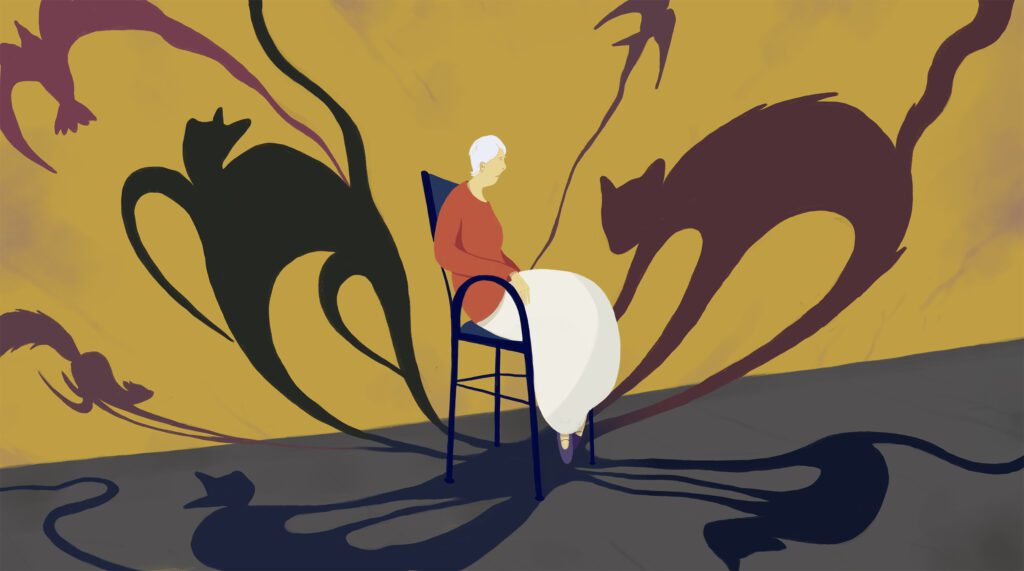
Hallucinations are a false perception that a person experiences such as hearing, seeing, or feeling something that is not there. Although hallucinations are not a symptom of Parkinson’s disease, it does affect 20-30 percent of people who have this disability. Hallucinations develop as a result of a change in Parkinson’s medication or an unrelated illness. An increase in levodopa medication, the primary medication used to treat Parkinson’s disease, has led many people with Parkinson’s disease to experience hallucinations. The most common type of hallucinations in people with Parkinson’s disease are visual hallucinations which tend to happen at night and consist of seeing people or animals. Hallucinations range on a spectrum of slight, mild, moderate, and severe. Slight hallucination has no form so it consists of movement in the shadows. Mild hallucinations consist of the individuals seeing an animal or a person, but the individual knows that even though it looks real it is not. Moderate hallucinations consist of the individual seeing a person and thinking that the person is real. Severe hallucinations can put individuals in a constant state of fear or panic of something that does not exist.
Treatment Options
After experiencing hallucinations, there are many different things one can do to prevent them from occurring again. First, rule out medical illness as a cause of the hallucinations. Different infections and diseases can cause hallucinations to start occurring. Next, review the prescriptions to ensure that medications and dosages are filled correctly. When one first experiences a hallucination, they should visit their primary doctor immediately. Their doctor can offer them medical approaches to reduce hallucinations such as prescribing certain medications. Their doctor can also remove non-essential medications that might be influencing the hallucinations. They may also refer them to a specialist if necessary. Aside from medical help, there are different things one can do to avoid hallucinations. For example, to go outside and exercise. Exercising and social interactions keep individuals stimulated. That can make it easier to dismiss hallucinations. One should also maintain good sleeping habits. Sleeping and waking up at the same time can be beneficial. Also avoiding long naps which can disrupt your sleep at night. Keep a night light or the lights on to reduce shadows which can be mistaken for hallucinations. Being able to recognize hallucinations and dismissing them can help with coping with them.
WellPath Partners is your senior resource referral guide. Follow us on ALL social media platforms and join us weekly for more content and public health discussions.
By: Cindy Birrueta
Office Support Specialist at WellPath Partners
Health Care Administration Student, California State University, Long Beach
